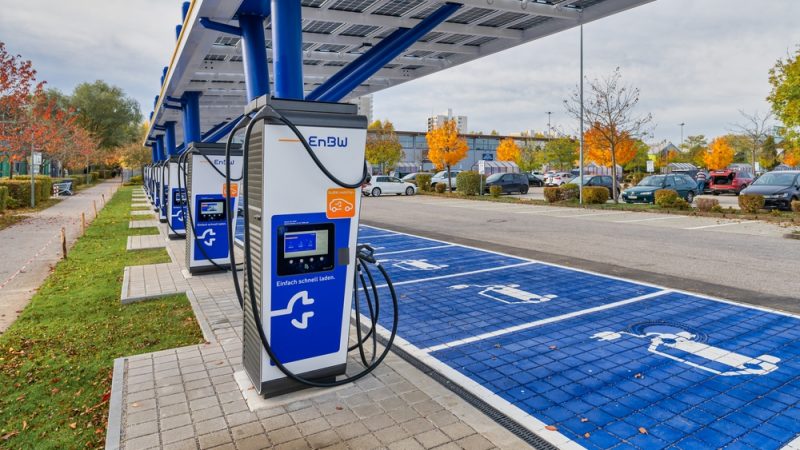At the Munich Motor Show (IAA Mobility), German Chancellor Olaf Scholz announced that in the coming weeks, the country will become “the first in Europe to introduce a law requiring 80% of service station operators to offer fast charging options of at least 150 kW for electric cars.”
With this significant improvement to Germany’s infrastructure, the aim is to increase the number of public charging stations from the current 90,000 to one million by 2030, with the ultimate goal of accelerating the adoption of electric vehicles in the country.
By then, Germany expects to have around 15 million electric cars on its roads.
A decisive boost for electric cars
According to Reuters, at the end of last April, there were only 1.2 million electric vehicles on German roads, so raising that number to 15 million in just seven years is nothing short of ambitious.
The main hurdles for the adoption of an electric car are its price, range, and the lack of charging points, but with this measure, the German government aims to find a turning point.
The legislation proposed by Scholz could be a key tool for Germany to be prepared for electric vehicles.
The country has already witnessed legal battles in this area, with Tesla suing Germany’s largest gas station operator, Tank & Rest, earlier this year for the rights to install charging stations on crucial routes.
“Expanding the charging network will make range anxiety a thing of the past for electric vehicle drivers,” said Scholz.
This measure, in line with similar ones already underway in Europe, will be warmly welcomed by the electric vehicle industry and manufacturers.
If successful, it is hoped that both other European countries and those beyond our borders will follow the German example.
For instance, in the United States, the oil giant Shell has been considering the possibility of installing chargers at all its gas stations for some time, but there has not yet been legislative impetus to compel them to do so.
Currently, the investment required for Germany to implement its charging network and details such as whether the new law will mandate the ability to pay for charges with a simple bank card instead of the various current apps have not been disclosed.
Additionally, customers should be informed in advance about the exact price of each charge, which does not always happen.
The European goal of a dense, efficient, and user-friendly infrastructure by 2030 is certainly very ambitious, but it is also necessary if Europe wants to achieve the transition to electric vehicles.







